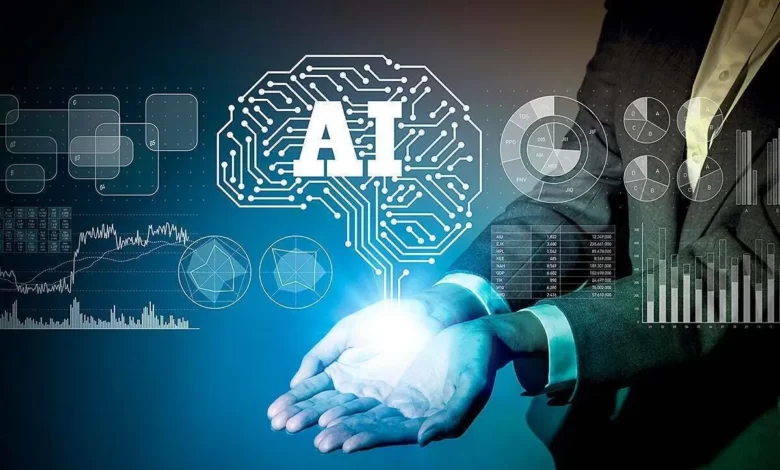How AI is Transforming IT Support and Customer Service

Artificial Intelligence is a machine that learns and makes decisions using algorithms, typically with minimal or no human supervision. AI is rapidly gaining traction in the IT industry because of its capacity to leverage data and make cost-effective decisions for nearly all company activities. AI is increasingly used to improve IT support and customer service efficiency and quality. AI-powered chatbots and virtual assistants can answer inquiries, provide recommendations, and solve problems in real time. AI may analyze customer data to find trends and patterns to improve products and services or personalize customer experiences. AI can also automate password resets and system updates, freeing IT professionals to address more complicated issues. AI in IT support and customer service improves efficiency, personalization, and service.
AI Applications in IT Support
A. Automated Troubleshooting and Technical Support
The use of AI to automatically answer technical queries and direct users to appropriate solutions increases the efficiency of IT support. The more complex issues are identified and directed to a human. AI can also automatically detect whether a customer is calling about a new or renewal business contract, so that the sales team is immediately notified.
B. Predictive Maintenance and Issue Detection
AI can automate the tedious activity of monitoring system health and detect problems. Such automatic analysis involves using patterns to improve future performance, identifying trends to prevent future issues, recognizing trends that could lead to maintenance alerts and preventive maintenance scheduling, and tracking the status of equipment so that it can be replaced before it fails.
C. Service Desk Management and Incident Response
AI can analyze customer service interactions to identify trends and patterns. AI can create reports that highlight the most common issues, services, products, and resolutions. It can also be used to automatically update software patches, conduct system updates, and reset passwords.
AI Applications in Customer Service
A. Chatbots and Virtual Assistants
Today many organizations are increasingly implementing chatbots and virtual assistants to answer inquiries, provide recommendations, and solve problems in real time. AI can be integrated into such systems to allow customers to interact with the system over the web in natural language.
B. Personalization and Customer Insights
AI can also anticipate customer needs and personalize the experience. AI can recognize patterns across multiple interactions and determine the identity of key decision makers to provide them with relevant information. AI can analyze customer data to find trends and patterns to improve products and services or personalize customer experiences.
C. Voice Recognition and Natural Language Processing
AI can also be used to improve customer service by eliminating human error in transcription and providing an accurate record of customer conversations.
Benefits of AI in IT Support and Customer Service
A. Increased Efficiency and Productivity
AI can significantly improve efficiency and productivity in IT support. AI can embed in all levels of an organization but primarily at the IT level, to assist with monitoring and managing performance and issues. AI can provide businesses with significant time savings, resulting in improved customer experience.
B. Improved Customer Satisfaction and Experience
AI-powered chatbots and virtual assistants can answer inquiries, provide recommendations, and solve problems in real time. AI can use voice recognition to improve the customer experience.
C. Reduced Costs and Downtime
Predictive maintenance and issue detection can increase uptime, reducing costs and downtime.
Challenges of AI in IT Support and Customer Service
A. Ethics and Data Privacy
Once AI-powered chatbots and virtual assistants are capable of recognizing human emotions, they could potentially analyze conversations to identify embarrassing details or private information. Organizations will need to be concerned with protecting customer data and maintaining privacy.
B. Integration and Compatibility
AI is slowly becoming more widely accepted. Companies will need to research AI applications and review their policies to ensure that they may be integrated into their systems and work with existing software and equipment.
C. Human Oversight and Support
Even as AI progresses, customers are unlikely to trust AI completely. The use of AI will likely require human oversight and support, at least in the short term. In the long term, AI may minimize the need for full-time IT staff.
Future Trends in AI for IT Support and Customer Service
A. Increased Automation and Integration
AI will continue to increase its presence in IT support. We can expect AI to be embedded in all levels of an organization but primarily at the IT level, to assist with monitoring and managing performance and issues.
B. Augmented and Virtual Reality Support
The support process will likely be augmented by chatbots, which will work increasingly with virtual reality applications that allow customers to view and interact with products in an interactive environment.
C. AI-Driven Analytics and Insights
AI will allow organizations to provide more insights, better service, and faster resolution. Analytics and AI-powered decision support will improve customer satisfaction.
Conclusion
AI has transformed IT and customer service. AI may evaluate data and learn from client encounters to deliver personalized and efficient service. This improves customer happiness, response times, and business costs. Businesses must use AI in IT and customer service. Businesses may increase revenue and market share by using AI-powered tools and solutions. AI can also improve customer understanding, resulting in more targeted marketing and more sales. So, organizations must embrace AI to maximize IT support and customer service.